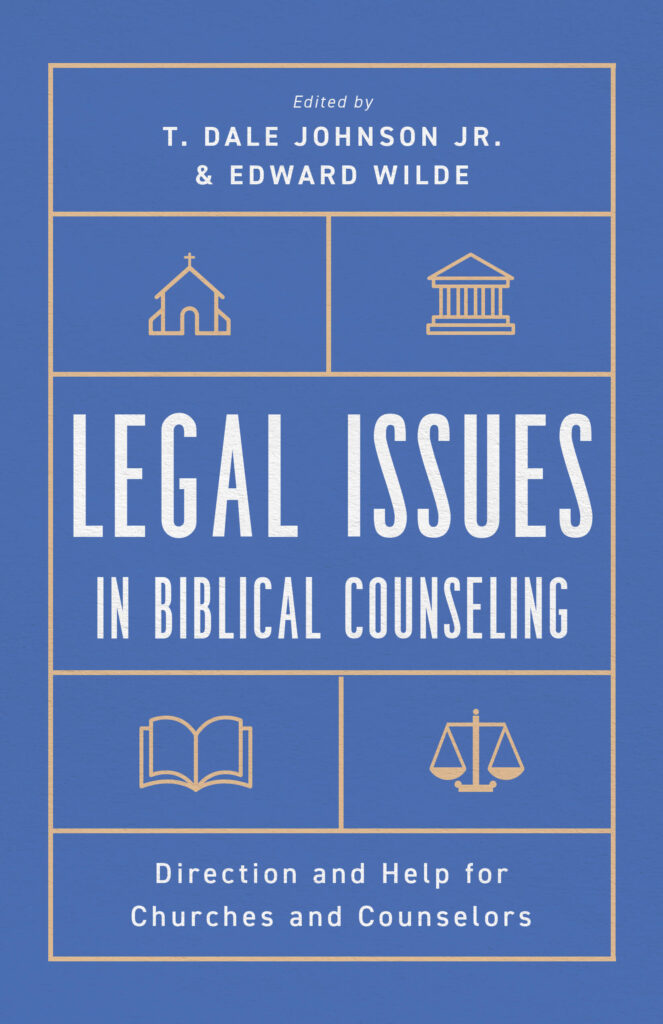Francis Schaeffer wrote about a “Christian consensus,” which used to be present in American culture. The atheist banker and the Christian might disagree about God, but they would agree on questions about basic morality, marriage, and human sexuality. That consensus no longer exists. Some involved in politics and the legal system (including government attorneys and many judges) are not just indifferent but are actively hostile to Christianity and Christian morality.
This is no reason to be fearful or troubled. The church began in an empire that was at best indifferent and often hostile to Christianity. Christian thought was considered to be something between bizarre and dangerous. We have all heard stories of how Christians at times faced terrible persecution.
In the present moment, we are not facing violent persecution. But many Christians are facing laws that could make it impossible for them to continue in their employment and live consistent with Christian convictions. These things are not pleasant. The Scripture is plain that we may face “affliction.” But when we consider this affliction, we must keep in mind that—even at its worst—this affliction is “light and momentary” and “preparing for us an eternal weight of glory beyond all comparison” (2 Corinthians 4:17).
We as biblical counselors should be the most hopeful as we consider affliction. We have seen and heard the wonderful things that God has done in the midst of human suffering. We know by experience that God works in all things when he conforms us to the image of Christ (Romans 8:28–29).
So we can look without illusion on a world that we know can quickly go from “bad to worse.” Without question, there is a concerted effort to limit religious liberty and Christian practice, but we still live in a nation that was founded on biblical principles and God-given rights, with religious liberty chief among them. Protecting that liberty benefits all Americans, including those who disagree with us about the Bible.
Does the Law Threaten Religious Liberty in Biblical Counseling?
The good news is that the US Supreme Court has recently affirmed the long-standing doctrine of “church autonomy.” As a practical matter, this means that the courts will not consider questions involving the internal working of a church. If a congregation fires a pastor because he denies the Trinity, the pastor cannot sue the church claiming he has a right to deny the Trinity. The court will allow him to deny the Trinity but will not tell the congregation it has to keep the heretic on staff.
So it is important that you retain a qualified local attorney to help you examine relevant laws and draft documents that clearly communicate the religious nature of your ministry. After these initial documents are drafted, be certain you have an established relationship with a local lawyer, even if that person is not on a monthly retainer (the Alliance Defending Freedom Church Alliance program works on a sliding scale with churches of all sizes regarding religious liberty documents).
One common concern is whether state licensing requirements apply to biblical counseling. Your written policies and forms should describe your ministry in distinctly religious terms, showing that it falls outside the definitions for licensed counseling. Your attorney can also help you examine antidiscrimination laws and define your ministry in a way that minimizes potential risks.
There are legal protections for your ministry. But to make good use of those protections, you need to know what those protections are and how to use them. That is why you need an attorney who can help you leverage that protection as you formulate policies and draft documents for your counselors and counselees. One good way to do that is to use frequent Scripture references to support your policies and practices.
The Law Protects Religious Liberty with Constitutions
The first line of legal defense is the United States Constitution. The First Amendment protects freedom of religion, speech, and association. The two Religion Clauses—Establishment and Free Exercise—are two sides of the same coin, guarding against government interference with religion. The government can neither mandate nor prohibit religious exercise. The government cannot define religious orthodoxy or become entangled in redefining it.
State constitutions also protect religious liberty, often defining it in terms of liberty of conscience. Many states limit religious freedom only if it threatens public peace or safety.
The Law Protects Religious Liberty with Legislation
Federal and state laws, passed by Congress and/or state legislatures, also protect religious liberty. Sometimes there are religious exemptions from specific laws. For example, employment law (Title VII) allows religious organizations to “discriminate” on the basis of religion, even though religious discrimination is otherwise unlawful. In 1993, Congress passed the Religious Freedom Restoration Act (RFRA) restoring the standards courts had used prior to a particular Supreme Court case decided in 1990. Under RFRA, if a law substantially burdens a sincerely held religious belief, the government must demonstrate a “compelling interest” that cannot be accomplished by less restrictive means. RFRA only applies to federal laws, but many states have enacted their own version of RFRA. I would encourage any church to draft employment and hiring documents that clearly state they hire based upon religious distinction according to the provisions allowed for religious organizations in Title VII and RFRA.
In addition to religious exemptions, some laws protect conscience, a concept closely related to religious liberty but even broader in scope. For example, after the Supreme Court declared abortion a constitutional right, Congress acted swiftly to preserve the conscience rights of professionals who object to participating in it. Then in 2017, after nearly a decade of legal battles over the contraception mandate generated by the Affordable Care Act, the Trump administration wrote new exemptions for employers who hold religious or moral objections to providing contraceptive (or abortifacient) drugs in the health insurance plans offered to employees. Changes in administration need to be carefully monitored. Protections enacted by one administration may be swept away by the next. Internal documents should be reviewed and updated as the legal landscape changes.
The Law Protects Religious Liberty with Church Autonomy
Court decisions have shaped and affirmed the doctrine of “church autonomy” over many decades. Based on the First Amendment Free Exercise Clause, the church autonomy doctrine builds a legal “wall” around churches, protecting matters of internal church governance, doctrine, and employment from government interference. In 2012, the Supreme Court unanimously affirmed this long-standing doctrine in the Hosanna Tabor-Lutheran case. The court is rarely ever unanimous about anything and certainly not religious questions. So when the entire court agrees on a matter of religious liberty it is probably safe to call it a “miracle.”
One key protection is the ministerial exception, which pertains to who a religious organization employs to preach and teach the faith—its “ministerial employees.” It would be a serious intrusion on religious liberty for the state to mandate that a church retain an unwanted minister or pay crippling amounts in damages.
The ministerial exception is a wonderful provision by the grace of God that enhances legal protection, but churches must have proper documents to clearly indicate their intent. The ministerial exception is broader than merely the person who preaches from the pulpit. It includes others who are essential to fulfilling the mission of the church or other religious organization. Clear documentation provides an extra layer of legal protection if the church ever enters litigation. Key documents include employment policies and agreements with detailed job descriptions and titles showing how each employee fulfills the church’s religious mission by performing religiously based duties. For example, in a religious school, teachers are employed to teach the faith to the next generation. They are the “lifeblood” of the school because their services are essential to achieving the school’s religious mission. Biblical counselors are the “lifeblood” of a biblical counseling ministry.
The Law Protects Religious Liberty with Qualified Privilege
Another important protection is the “qualified privilege” available for communications within a church (or other organization) about its internal business. This is particularly important in connection with church discipline. The qualified privilege protects communications among the church leaders and members about internal church matters—such as the discipline of a member—that could otherwise be considered defamatory or an invasion of privacy. It is important to be sure that such communications are properly restricted to persons who have an interest in the matter. For example, an announcement about church discipline could be made in a restricted “members only” meeting that excludes visitors. This is why it is also important to have the church discipline policy clearly explained in your church documentation so that the practice is clear to all members who join fellowship.
A Few Things You Can Do
❒ Always be explicit that you are practicing a religious discipline.
❒ Always communicate that we are providing biblical counseling, which is Christian discipleship in all areas of life.
❒ Support the efforts of other Christians who are involved in litigation concerning religious liberty.
Excerpted from Legal Issues in Biblical Counseling: Direction and Help for Churches and Counselors ©2022 by T. Dale Johnson Jr. and Edward Charles Wilde. Used with permission of New Growth Press. May not be reproduced without prior written permission.






